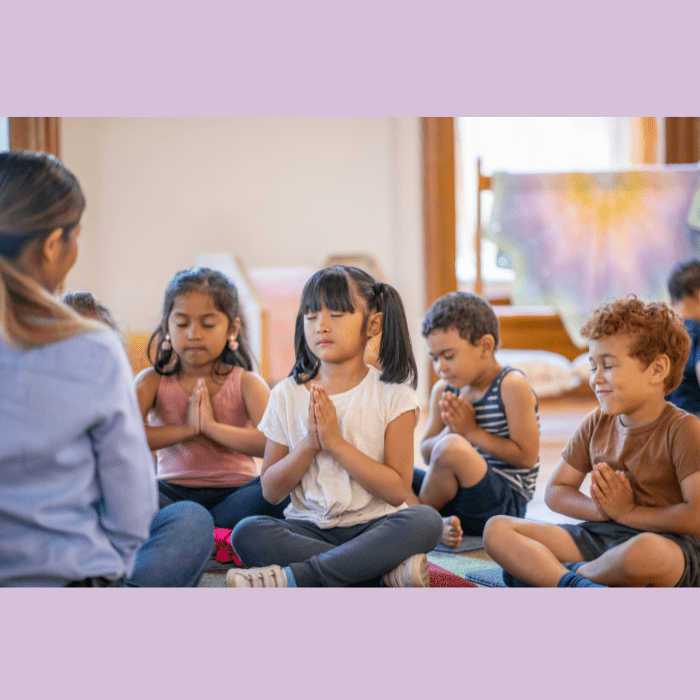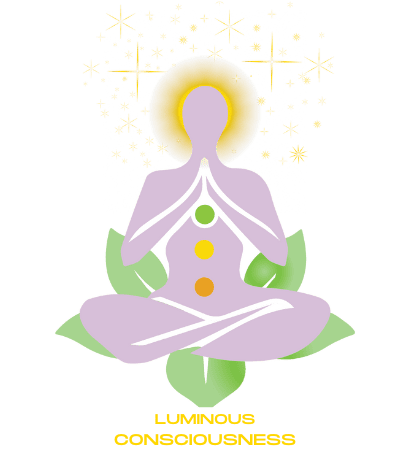Here’s a little transparency: Our website contains affiliate links. This means we may receive a small commission if you click and make a purchase. Don’t worry—there’s no extra cost to you. It’s a simple way you can support our mission to bring you quality content. Learn more at the Affiliate Disclosure page.

Mindfulness Practices: A Path to Enhanced Consciousness
Have you ever found yourself rushing through life, feeling on autopilot? You might be going through the motions, but you need to catch up on the richness of the present moment. Sound familiar? That’s where mindfulness comes in. It’s a tool that helps us slow down, reconnect, and live more consciously. Let’s explore how mindfulness can open the door to a more meaningful and present life.
Understanding Mindfulness
What is Mindfulness?
Mindfulness is about taking charge of your mental landscape and paying full attention to what’s happening without judgment. Think of it as being the director of your own experience. Whether it’s your thoughts, feelings, or the world, mindfulness empowers you to stay grounded in the here and now rather than being swept away by distractions. Imagine being in control, watching your thoughts float by like clouds rather than letting them carry you away.
Why is Mindfulness Important?
We live in a fast-paced, often chaotic world where our minds are bombarded with information non-stop. It’s no wonder we sometimes feel overwhelmed and disconnected. Mindfulness acts like a mental reset button, offering a soothing balm amid the storm. It helps us pause, breathe, and return to ourselves, bringing a sense of calm and tranquility. This simple practice can help you regain focus, reduce stress, and fully experience life.

The History of Mindfulness
Ancient Roots of Mindfulness
Mindfulness is not a new concept. It dates back thousands of years, primarily rooted in Buddhist meditation practices. Buddhist monks practiced mindfulness to achieve peace, wisdom, and compassion. Though deeply spiritual in origin, mindfulness has since transcended religious boundaries and evolved into a practice embraced by people from all walks of life.
Modern Applications of Mindfulness
In recent decades, mindfulness has gained popularity in the secular world. It’s now a staple in mental health treatments, education, and corporate environments. From stress reduction workshops to mindful leadership programs, mindfulness is everywhere. Its proven effectiveness is the reason it’s become so widely embraced.
Key Components of Mindfulness Practice
Focused Attention
At the heart of mindfulness is focused attention. This could be paying attention to your breath, bodily sensations, or external sounds. It’s like training a muscle—your ability to focus sharpens over time, and distractions lose power over you.
Open Monitoring
While focused attention zeroes in on one thing, open monitoring expands your awareness. You notice everything that comes up—thoughts, sensations, emotions—without attaching to them. It’s like zooming out from a single point of focus to a panoramic view of your mind.
Non-Judgmental Acceptance
The hardest part of mindfulness is observing your experiences without judgment. It’s natural to label things as good or bad, pleasant or unpleasant. However, mindfulness’s goal is to accept whatever arises without trying to change it. This non-judgmental stance fosters inner peace and reduces the emotional rollercoaster.

Benefits of Mindfulness
Reduced Stress and Anxiety
Are you feeling frazzled? Mindfulness can help. Studies show that mindfulness reduces activity in the amygdala—the part of the brain responsible for the fight-or-flight response. By calming your nervous system, mindfulness helps you manage stress more effectively. It’s like giving your brain a daily workout to become more resilient to stress.
Improved Focus and Concentration
Staying focused is a superpower in a world full of distractions. Mindfulness strengthens your ability to stay present and concentrate on tasks. Whether you’re working, reading, or simply having a conversation, mindfulness makes you more attentive.
Enhanced Emotional Regulation
Mindfulness creates a gap between stimulus and response. Instead of reacting impulsively, it gives you the space to observe your emotions and choose a more thoughtful response. It’s like having a pause button for your emotional reactions.
Increased Self-Awareness
Mindfulness is like a mirror that reflects your inner world. You gain deeper insight into your patterns and habits by becoming more aware of your thoughts, feelings, and behaviors. This increased self-awareness is the foundation of personal growth and emotional intelligence.
Drawbacks and Challenges of Mindfulness
Difficulty in the Beginning
Mindfulness can be challenging. For beginners, sitting quietly and observing thoughts can be uncomfortable or frustrating. Your mind may wander, and that’s perfectly okay. The key is to be patient with yourself and know that mindfulness is a practice, not perfection.
Potential for Emotional Upheaval
As you begin to pay more attention to your inner world through mindfulness, you may uncover emotions you’ve been suppressing. This can be overwhelming, but it’s also an opportunity for healing. If you struggle, seeking guidance from a mindfulness coach or therapist can be a helpful step in your mindfulness journey.
Implementing Mindfulness Practices
Formal Meditation
One of the most effective ways to practice mindfulness is through formal meditation. Guided meditations can be beneficial for beginners. It’s like having a personal trainer for your mind. Instead of sitting silently, a guide walks you through the process, helping you focus and visualize, preventing your mind from wandering.
Midvalley has perfect courses on mindfulness-related programs. One of the good ones, Becoming Focused and Indistractable Masterclass, has many rave reviews.
Apps like Brainstap and Headspace offer excellent guided meditation sessions for beginners. They’re a great way to ease into the practice.
Informal Practices
You don’t need to set aside extra time to practice mindfulness. It’s a flexible practice that can be integrated into everyday activities, seamlessly blending with your routine. You can practice being fully present whether eating, walking, or doing household chores. Mindful eating, for example, involves savoring each bite paying attention to the flavors, textures, and smells. Mindful walking lets you feel the ground beneath your feet and the breeze on your skin. The key is to remain fully present in whatever you’re doing without disrupting your daily life.
Case Studies & Examples
Mindfulness in Education
Schools are increasingly adopting mindfulness programs to help students manage stress and improve focus. Studies show that mindfulness improves emotional regulation and cognitive performance in children. Imagine the impact of giving kids the tools to manage their emotions from a young age!
Mindfulness in the Workplace
Workplaces are increasingly turning to mindfulness to enhance employee well-being and productivity. Companies like Google and Nike have introduced mindfulness training, leading to happier employees, improved focus, and enhanced job performance. The integration of mindfulness in the workplace has the potential to transform stress-filled environments into spaces of creativity and calm.

Future Trends in Mindfulness
Technology Integration
With the rise of mindfulness apps and wearable tech, practicing mindfulness has always been challenging. From guided meditations to mindfulness reminders, technology is making mindfulness more accessible to everyone.
Personalized Mindfulness
As mindfulness research grows, we expect more personalized mindfulness interventions. Just as exercise plans are tailored to individual needs, mindfulness programs may soon adapt to specific stressors or emotional challenges, offering a more targeted approach to mental well-being.
Conclusion
Mindfulness is more than just a trend—it’s a transformative practice that can deepen your connection to yourself and the world around you. Mindfulness helps you navigate life’s ups and downs more easily by fostering awareness, acceptance, and nonjudgment. So why not start today? Take a deep breath, ground yourself in the present moment, and discover the magic mindfulness can bring to your life.
Frequently Asked Questions About Mindfulness
1. How long do I need to meditate to experience the benefits of mindfulness?
Even 5-10 minutes of mindfulness meditation daily can make a difference. Consistency is vital, so start small and gradually build up as you become more comfortable.
2. Is mindfulness a religious practice?
While mindfulness has its roots in Buddhism, it’s practiced in secular settings by people of all faiths or none at all. It’s simply a tool to enhance present-moment awareness.
3. What if I can’t stop my thoughts during meditation?
It’s natural for thoughts to arise during meditation. The goal is to continue to observe them without getting caught up in them. Gently bring your focus back to your breath or chosen anchor.
4. Can mindfulness help with chronic pain?
Yes, mindfulness has been shown to help individuals manage chronic pain by reducing stress and improving emotional coping mechanisms.
5. How can I incorporate mindfulness into my daily life?
Mindfulness doesn’t require formal meditation. You can practice it during everyday activities like eating, walking, or washing dishes by focusing on your senses and staying fully present.
Check Out This Other Mindfulness-Related Blogs
Check out the Brintap headset and app for a revolutionary mindfulness and meditation experience! For insightful Braintap reviews, click here. Also, download the Braintap research report here.

